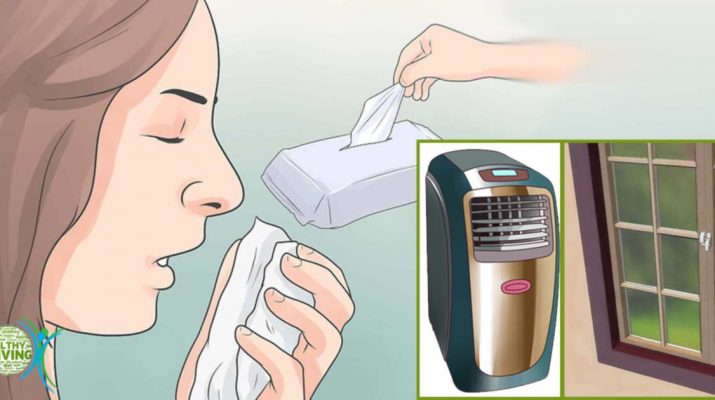Autumn is here and with it the unstoppable allergies. You can’t help but feel miserable due to all that sniffing and sneezing. Well, if that is the case, then you most likely have a pollen allergy. More than 30 million Americans have the same symptoms as well.
The reason for this problem is the weak immune system. Instead of protecting the body from dangerous viruses and bacteria, the immune system tries to neutralize the enemy. In this case, that is the pollen.
As a result, when you inhale some of the pollen particles, they can trigger a number of biochemical reactions which can cause fatigue, sneezing, congestion, coughing, itchy eyes, etc.
How to Deal with Allergies?
Because of the nice weather outside, we are all tempted to go outdoors more. But for people with allergies, this might sometimes be the wrong decision. It is better to stay at home if you can to avoid any contact with bacteria, viruses or pollen.
In the end, you are less likely to feel all the symptoms that the allergy can cause. As a result, we have prepared some of the best tips on how you can manage your seasonal allergy.
1. Make Sure the Home is Pollen-Free
During ragweed season, make sure to take all the plants that might have pollen, outside. Keep the windows shut most of the day, and use the air conditioner, especially if you are in your car.
By using the air conditioner, you can remove the moisture from the air and prevent mold, according to the chairman of the department of otolaryngology at Loyola University Chicago Stritch School of Medicine, James Stankiewicz.
Besides, the mold can aggravate the symptoms.
According to the assistant professor of otolaryngology at the University of Mississippi Medical Center in Jackson, Christine Franzese, if you can’t-do that in your home, at least try to use one room where you can keep the windows shut.
This way, your family members won’t mind, and you can be able to avoid any contact with pollen. Furthermore, try getting a HEPA vacuum cleaner to remove all the pollen and dust completely.
2. Check the Levels of Pollen
If you live in an area where there is a lot of pollen, try not to go outside. Make sure to get some sun, but minimize your exposure to the multiple allergens. This way you can be able to continue with your daily things you are trying to do.
3. Don’t Let the Clothes Hang Outside to Dry
Clothes are a magnet for pollen. Therefore, you should avoid putting your clothes outside to dry if you want to avoid any contact with pollen.
4. Use the Air Conditioner at Night
It is critical for the health to leave the bedroom clean, especially if you suffer from allergies. As Randhawa says, you should install a HEPA filter system during the allergy season, so that you will breathe clean and purified air while you sleep.
5. Get More Butterbur
The butterbur tablets might help with your teary eyes and itching. According to a study published by The British Medical Journal in 2002, the natives of Europe, Asia, and northern Africa, were able to find a solution for this problem.
They believed that the roots and leaves of the butterbur brush might be able to reduce the symptoms of hay fever as cetirizine, which is an active ingredient in Zyrtec. But because butterbur belongs to the same family as ragweed, people who are allergic to ragweed shouldn’t consume it.
6. Remove Piles of Dead Leaves
During autumn, it is normal for wet leaves to fall and cover the ground. Therefore, we need to stack them in wet piles and get rid of them. But the appearance of the garden is not the only reason we should do that.
The reason for this is because the leaves are wet and moldy, which can cause some allergic reactions. By removing the pile of leaves, you can get an allergy-free environment.
7. Visit the Beach
Do you live near some beach? If you do, remember that the water can help if you are allergic. Around the beach, there isn’t a lot of pollen, which in turn can make your time worthwhile. To check all the allergen levels and pollen counts, make sure to check a database online.
When to See a Doctor?
If you suffer too much from your pollen allergy, make sure you seek medical attention and treat the infection before it creates more problems, says the chairman of the Public Education Committee of the American College of Allergy, Asthma, and Immunology, Allen Meadows.
He believes that if you want to feel good, you will have to get a good night sleep and proper rest.
What do you think? Don’t forget to tell us your ideas and leave us a comment.
Source: Today | Everyday Health | WebMD | Women’s Health

